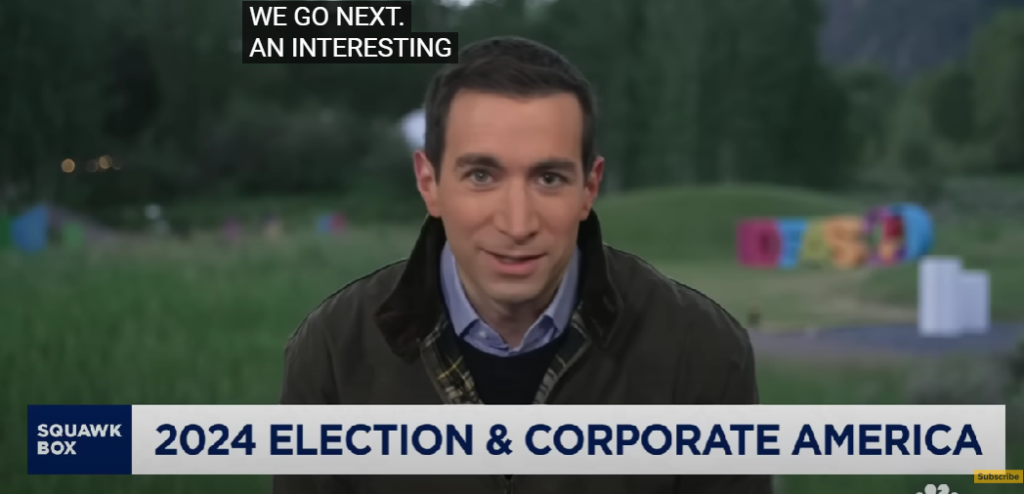Zero Fortune 100 CEOs Support Former President Donald Trump Financially
In a departure from historical norms, none of the CEOs from America’s Fortune 100 companies have contributed financially to former President Donald Trump’s political campaigns in recent election cycles. This revelation, compiled by Yale’s Jeffrey Sonnenfeld, challenges the assumption that the business establishment uniformly supports Republican candidates, especially those who have held the presidency.
During both the 2016 and 2020 elections, Donald Trump did not receive a single donation from the top executives of Fortune 100 companies. This stands in stark contrast to previous Republican campaigns, such as George W. Bush’s successful bids, which garnered support from a substantial number of CEOs. In 2004, for instance, Bush received donations from 42 Fortune 100 CEOs, highlighting a significant shift in corporate political contributions over the years.

CEO Political Leanings and Trump’s Agenda
While approximately two-thirds of current Fortune 100 CEOs identify as Republicans, their lack of financial support for Trump underscores broader concerns about his leadership style and policy agenda. Trump’s “Make America Great Again” (MAGA) platform, characterized by nationalist rhetoric and protectionist economic policies, has not resonated uniformly within corporate circles. According to Sonnenfeld’s analysis, many corporate leaders, while aligned with conservative principles, have found Trump’s governance approach and international relations stance contentious and unpredictable.
Evaluation of the Political Landscape
Sonnenfeld notes that while CEOs may not fully endorse President Joe Biden, they generally perceive him as a more predictable and stable option compared to Trump. This sentiment reflects a pragmatic approach among business leaders who prioritize stability and a conducive economic environment for their companies’ operations.
Investor Support versus CEO Caution
Interestingly, while Fortune 100 CEOs have refrained from supporting Trump, certain prominent investors have shown a more favorable disposition towards the former president. Figures like Steve Schwarzman, CEO of Blackstone, and Jeff Yass of Susquehanna, who holds significant stakes in companies like TikTok’s parent company, have displayed a shift from initial skepticism towards a more accommodating stance towards Trump.
Implications for Corporate America and Political Engagement
Sonnenfeld’s findings underscore a pivotal moment in corporate political engagement, where CEOs of major companies appear cautious and selective in their political endorsements. The absence of Fortune 100 CEO donations to Trump’s campaigns signals not only a personal reluctance towards his leadership but also a strategic calculation about maintaining corporate reputation and alignment with broader stakeholder interests.
As the political landscape evolves, the relationship between corporate America and presidential politics remains complex. Trump’s unprecedented lack of support from Fortune 100 CEOs reflects significant shifts in corporate political behavior, highlighting broader concerns and uncertainties within the business community. The role of businesses in shaping national political discourse and policy outcomes continues to be a critical aspect of American governance and economic strategy.
Looking Ahead
Moving forward, the dynamics of corporate political engagement are likely to evolve further. CEOs and corporate leaders will continue to navigate the intersection of business interests and political landscapes, weighing factors such as policy alignment, leadership stability, and public perception. The influence of corporate America on electoral outcomes and legislative priorities underscores the importance of transparency, accountability, and strategic foresight in corporate political activities.
The absence of financial support for Donald Trump from Fortune 100 CEOs marks a significant departure from past norms in corporate political contributions. This trend reflects deeper reservations within the business community about Trump’s leadership style and policy agenda, despite a majority of CEOs identifying with the Republican Party. Jeffrey Sonnenfeld’s analysis highlights a nuanced perspective among corporate leaders, balancing ideological leanings with practical considerations for business continuity and stakeholder relations. As future elections approach, the decisions of Fortune 100 CEOs will continue to shape the landscape of corporate political engagement in the United States.
For further insights and comprehensive content, please visit our homepage



